Archive
2020
KubaParis
Hex Me
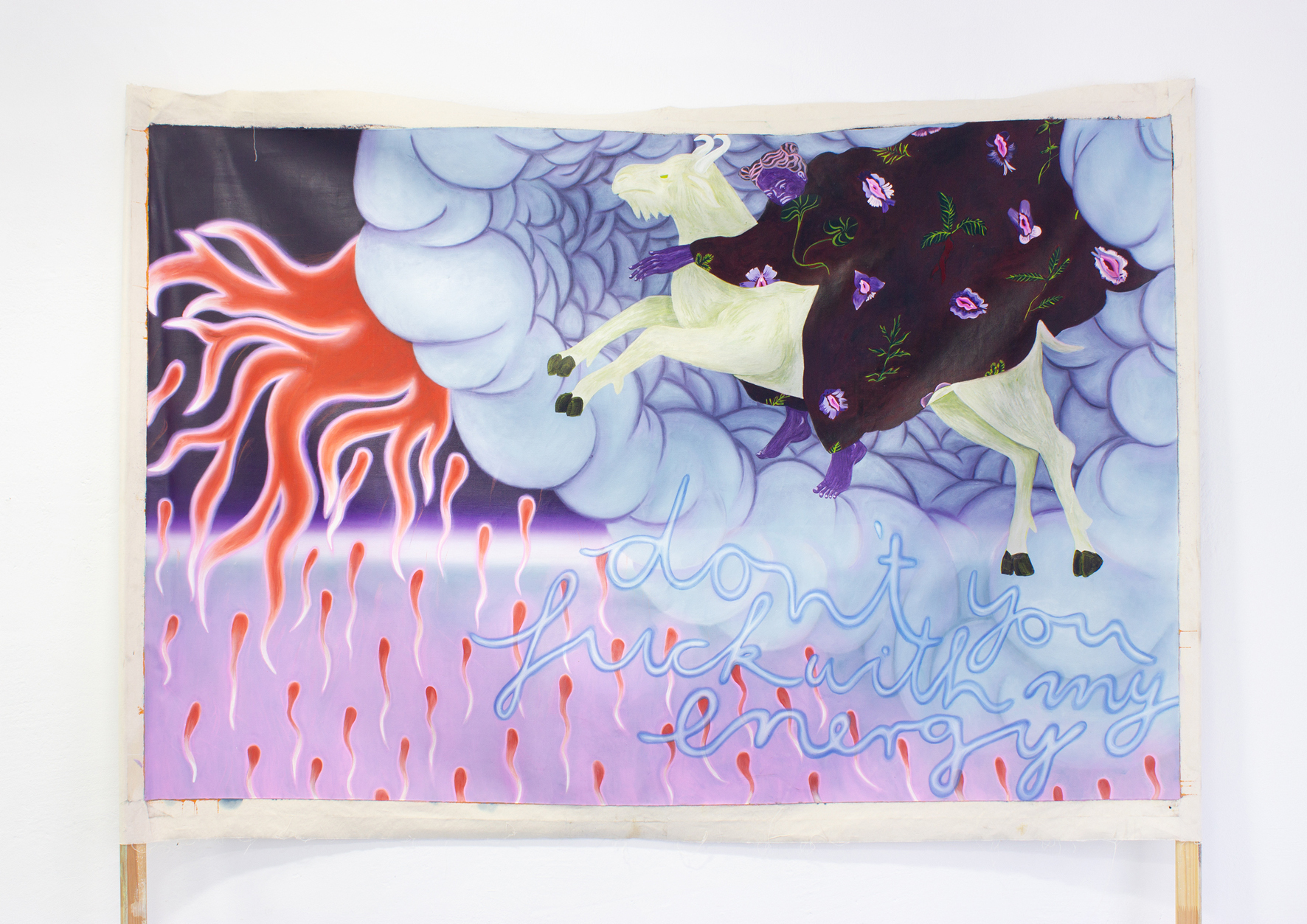
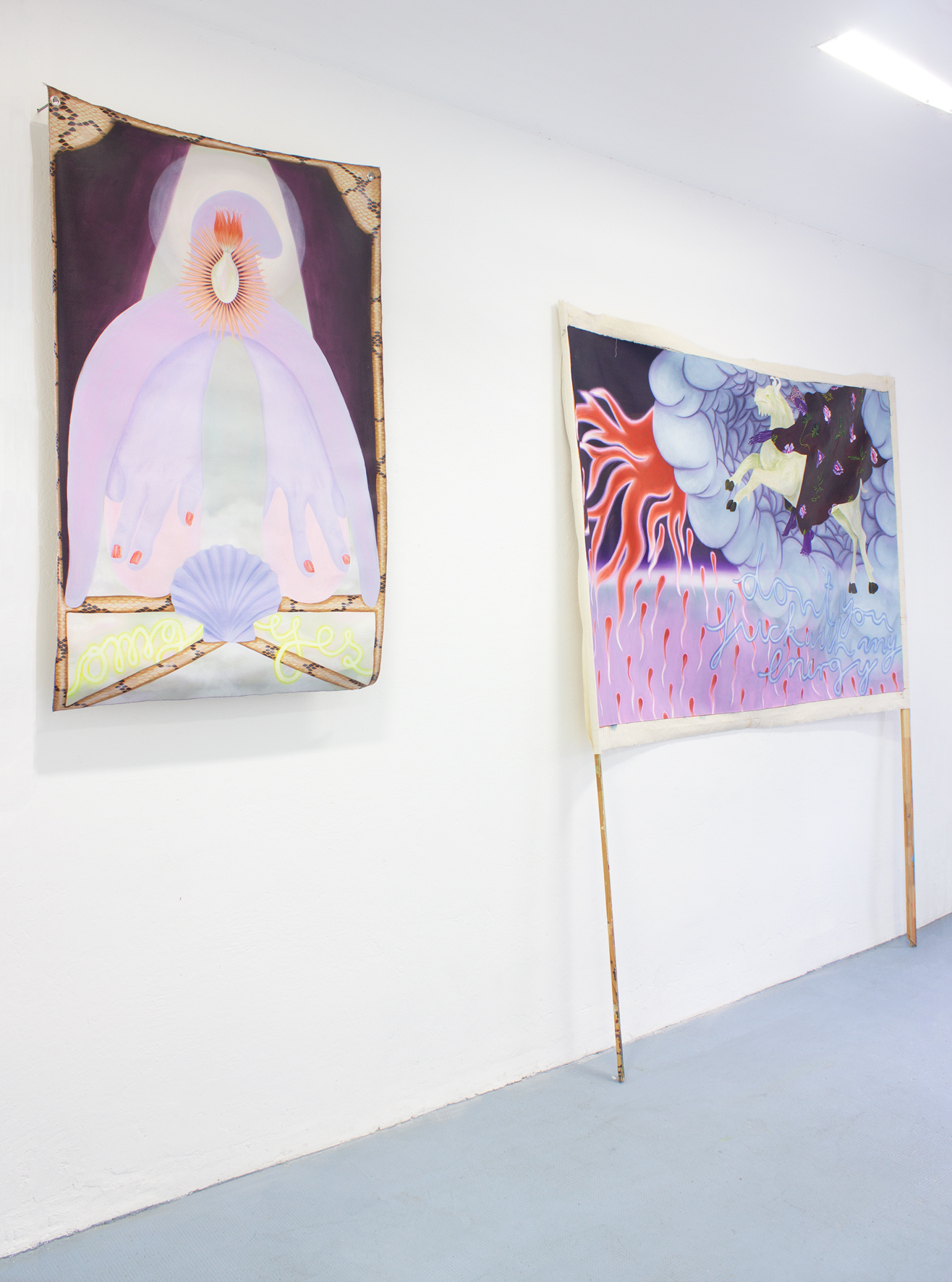
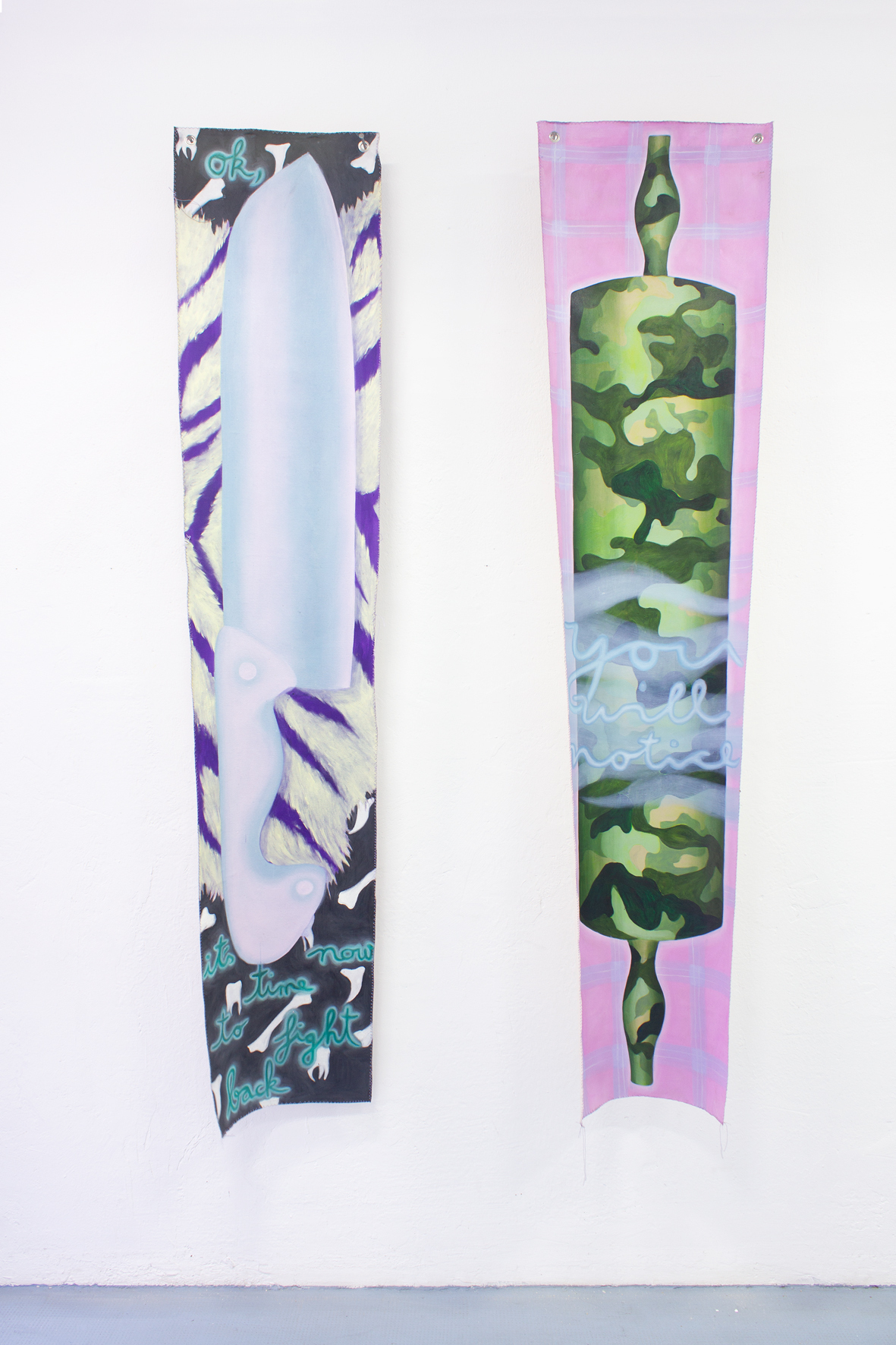
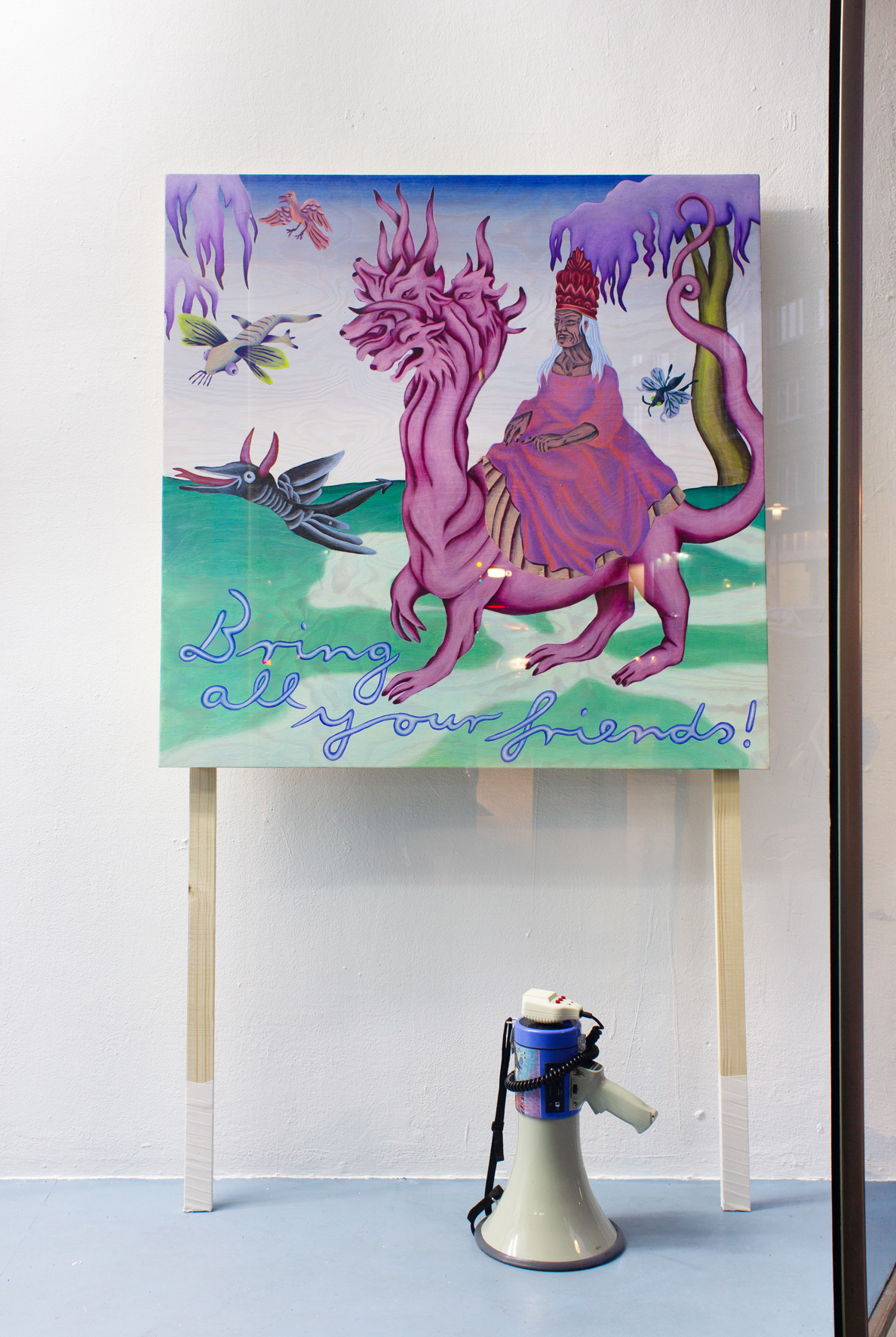
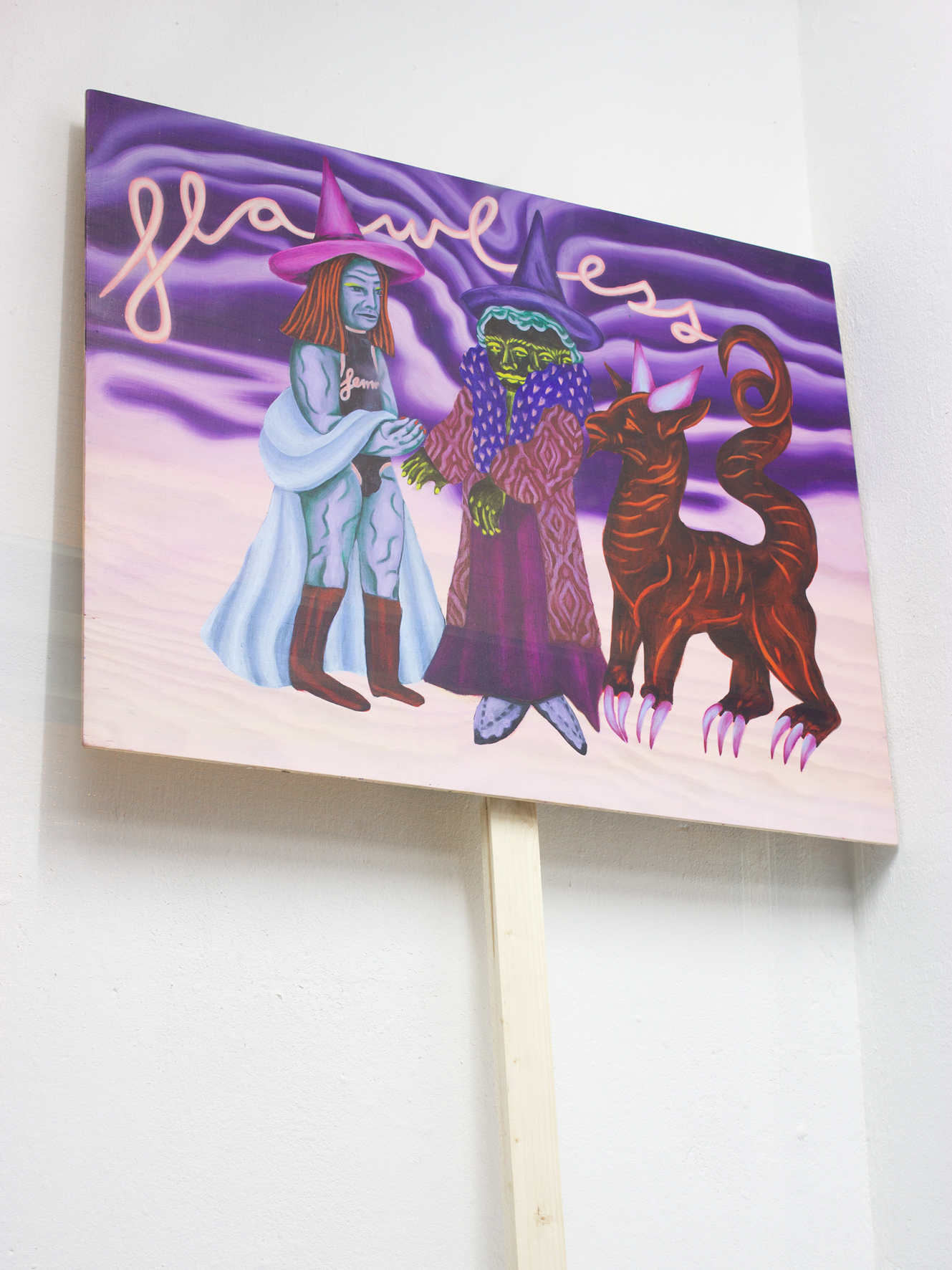
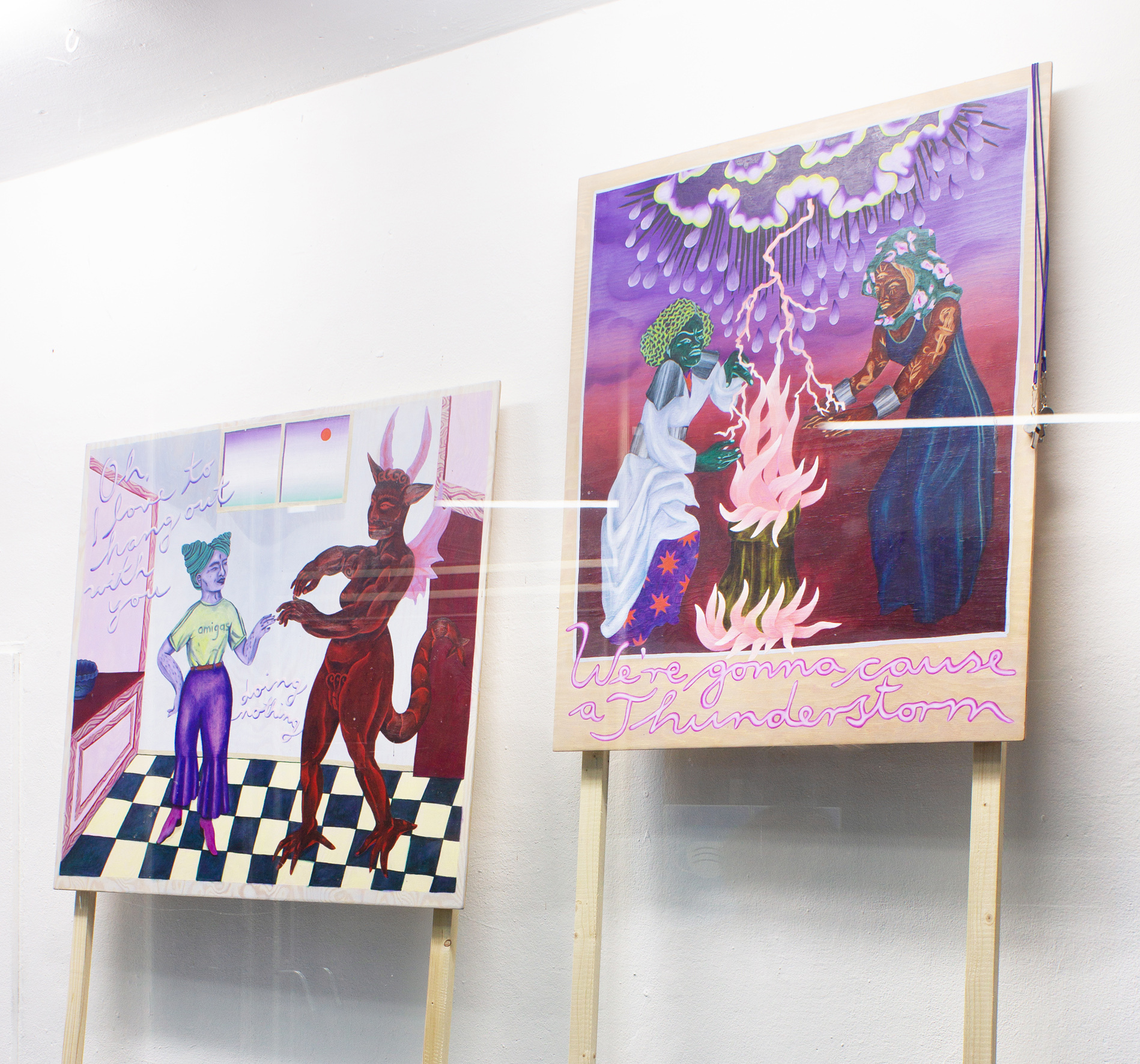
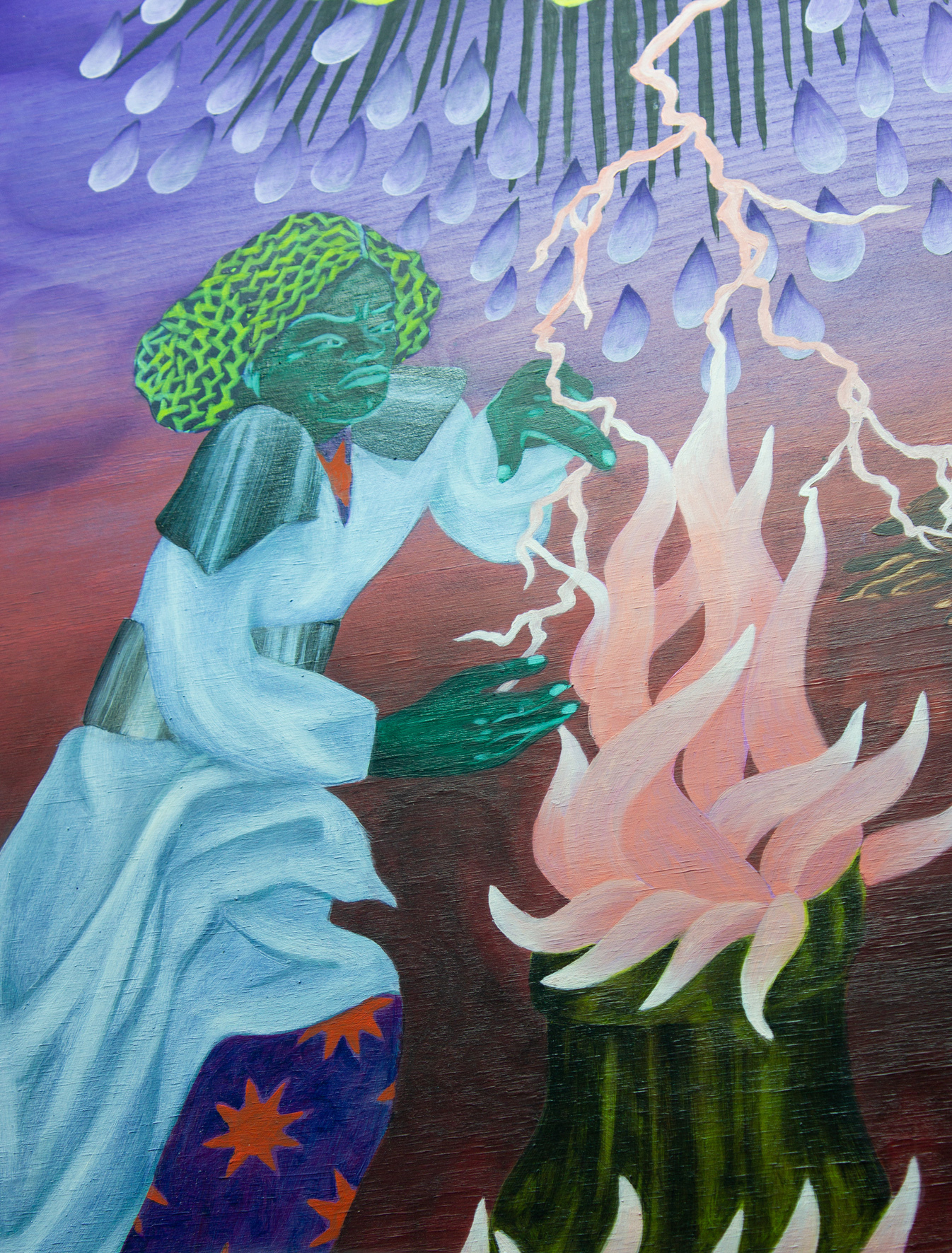
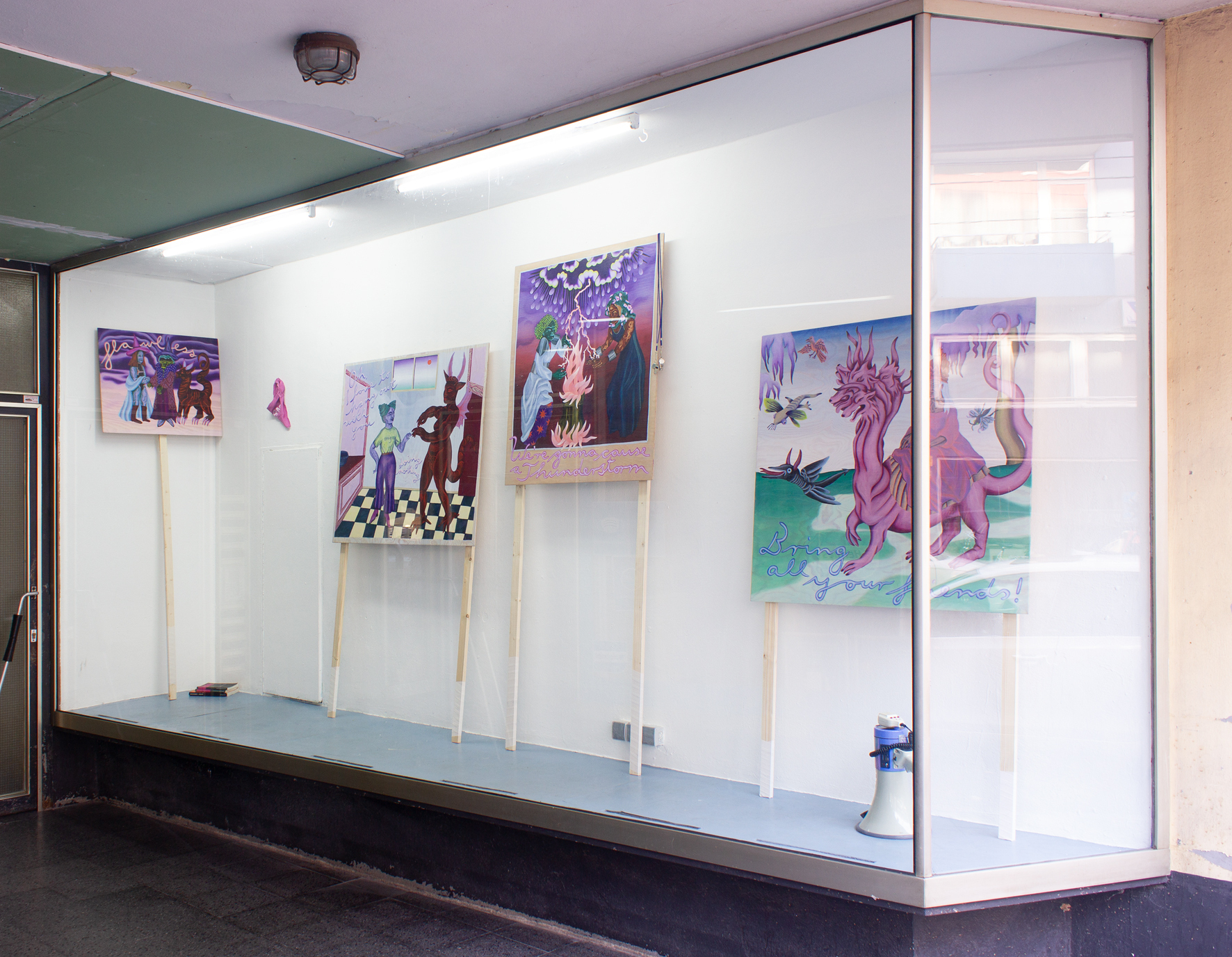
Location
SonneundsolcheDate
30.10 –21.11.2020Subheadline
Hex Me Marleen Rothaus 31.10. - 22.11.2020 SonneundsolcheText
Marleen Rothaus, b. 1991, is an artist, feminist activist and social worker in Cologne.
In her artistic work, Rothaus examines the intersection between art and political activism. Her oil paintings on canvas and wood initially refer to classical painting in terms of their materiality before they are converted into political banners and signs. In this form they become props for feminist protests. The motifs of the banners revolve around issues of unpaid and invisible care work with feminine connotations, sexual and reproductive self-determination as well as the figure of the witch as the autonomous woman_, with whose persecution the exploitation of women_ as defined by capitalism began. By carrying her paintings into public space as protest banners, Rothaus questions the current possibilities of the traditional medium of painting. She adds political capacity and takes off the elitist status of the medium painting. In her current exhibition 'Hex Me' at sonneundsolche in Düsseldorf, Rothaus is showing a series of protest signs in the showcase that can be seen from the street. The motifs of the signs are inspired by early modern woodcuts with depictions of so-called witches, which, in combination with bright, combative lettering, demand a paraphrasing of our historical consciousness. Through the affirmative appropriation of the witch figure who has magical superpowers, Rothaus plays with the alleged power in order to derive emancipatory potential from it. Looking at the paraphernalia of resistance, the witches herald the same threat that they posed to patriarchal capitalism and white supremacy back then.
To see until November 22nd, 2020 @sonneundsolche
sonneundsolche
Birkenstraße 44
40233 Düsseldorf
Germany
https://www.sonneundsolche.com/
Funded by the Düsseldorf Cultural Office
The _underscore is intended to question the binary gender order and to include queer, intersex, non-binary and trans* people in the (historical) discourse.
Marleen Rothaus